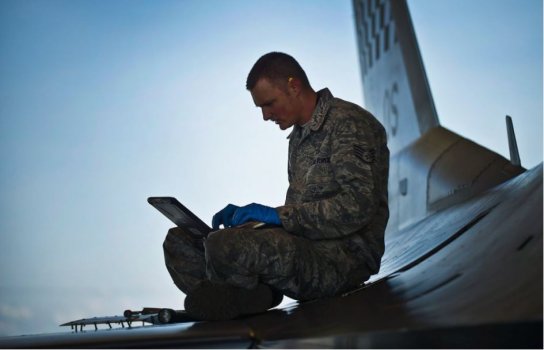Artificial Intelligence and machine learning … [are] foundational to the future of cybersecurity. We have got to work our way through how we’re going to deal with this. It is not the if, it’s only the when to me,” Adm. Mike Rogers, former chief of the National Security Agency and U.S. Cyber Command, remarked in an interview. During his presidency, Barack Obama shared his concerns about an attacker using artificial intelligence (AI) to access launch codes for nuclear weapons. “If that’s its only job, if it’s self-teaching and it’s just a really effective algorithm, then you’ve got problems,” Obama said.
AI opens up a set of new risks and opportunities for the military and intelligence community. It is, however, important to be more precise about how AI applications impact different types of military and intelligence activities. Discussing the use of AI in cyber operations is not about whether technology or humans will be more important in the future. It is about how AI can make sure developers, operators, administrators, and other personnel of cyber organizations or hacking groups do a better job. It is essential to understand some of the key applications of AI in future cyber conflicts—from both the offensive and defensive perspectives.
How AI Can Help the Attacker
There are several ways in which hackers can benefit from AI techniques to conduct cyber operations more effectively. First, AI technology might help in finding exploitable vulnerabilities. Finding unknown vulnerabilities is often done through a dynamic process called “fuzzing” in which an operator automatically inputs massive amounts of data, called fuzz, to uncover “response exceptions,” or potential signs of vulnerabilities. AI will improve these fuzzing techniques. Researchers at the Pacific Northwest National Laboratory have already demonstrated that AI-based fuzzing, complemented with conventional fuzzing techniques, is faster and more effective than conventional fuzzing alone.
Continue reading: https://nationalinterest.org/blog/techland-when-great-power-competition-meets-digital-world/ai-will-be-double-edged-sword-future
AI opens up a set of new risks and opportunities for the military and intelligence community. It is, however, important to be more precise about how AI applications impact different types of military and intelligence activities. Discussing the use of AI in cyber operations is not about whether technology or humans will be more important in the future. It is about how AI can make sure developers, operators, administrators, and other personnel of cyber organizations or hacking groups do a better job. It is essential to understand some of the key applications of AI in future cyber conflicts—from both the offensive and defensive perspectives.
How AI Can Help the Attacker
There are several ways in which hackers can benefit from AI techniques to conduct cyber operations more effectively. First, AI technology might help in finding exploitable vulnerabilities. Finding unknown vulnerabilities is often done through a dynamic process called “fuzzing” in which an operator automatically inputs massive amounts of data, called fuzz, to uncover “response exceptions,” or potential signs of vulnerabilities. AI will improve these fuzzing techniques. Researchers at the Pacific Northwest National Laboratory have already demonstrated that AI-based fuzzing, complemented with conventional fuzzing techniques, is faster and more effective than conventional fuzzing alone.
Continue reading: https://nationalinterest.org/blog/techland-when-great-power-competition-meets-digital-world/ai-will-be-double-edged-sword-future

